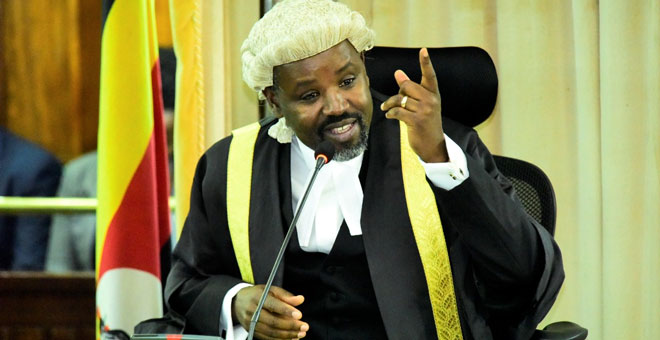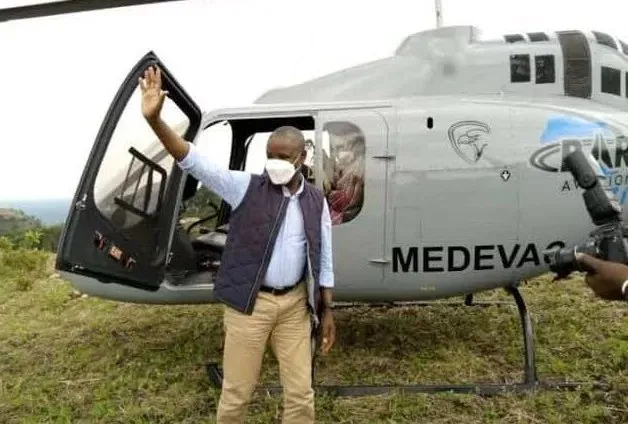Ugandan Deputy Speaker Thomas Tayebwa narrowly escaped a potentially disastrous situation when a helicopter carrying him and his team was forced to make an emergency landing in Western Uganda. The incident, which occurred late in the evening, has sparked discussions about flight safety protocols and the pressures of political schedules.

The day began routinely for Tayebwa, who attended President Museveni’s commissioning of a new power line in the West Nile sub-region before rushing to Bushenyi for a traditional wedding ceremony. As the evening wore on, the Deputy Speaker’s team hurried to Nyakisharara airfield, intending to return to Kampala by helicopter.
Upon arrival at the airfield, Tayebwa’s group was initially advised against night flying due to the lack of night vision equipment. Sources close to the matter revealed that the team was recommended to stay overnight in Mbarara and depart the following morning. However, in a decision that would prove fateful, they were reportedly persuaded by BAR Aviation’s CEO, Barak Orland, that a night flight to Kampala was feasible.
The situation took a dramatic turn shortly after takeoff when fire was observed emanating from the helicopter’s cockpit, causing panic among the passengers. In a critical moment, the pilot made the decision to attempt an emergency landing. Tayebwa’s security detail sprang into action, facilitating the rescue of the Deputy Speaker and other passengers from the aircraft.

While details remain scarce, sources indicate that all individuals aboard the helicopter survived with only minor injuries. The aircraft, however, was less fortunate, reportedly burning to ashes after the crash landing at the airfield. Preliminary reports suggest that a technical malfunction may have been the root cause of the fire.
This incident raises serious questions about adherence to flight safety protocols, especially concerning night operations for high-ranking government officials. It also highlights the potential risks associated with tight political schedules that may pressure decision-makers to push the boundaries of safe travel practices.
As the Uganda Civil Aviation Authority and BAR Aviation prepare their official statements on the incident, the broader implications for political travel and aviation safety in Uganda are likely to come under scrutiny. The near-miss serves as a stark reminder of the importance of prioritizing safety over expediency, even in the fast-paced world of politics.
Deputy Speaker Tayebwa’s brush with danger is expected to prompt a review of travel policies for government officials and may lead to stricter enforcement of night flying regulations. As the investigation unfolds, many will be watching closely to see what lessons can be learned to prevent similar incidents in the future.


